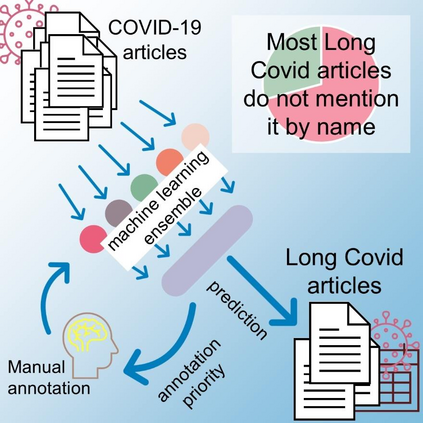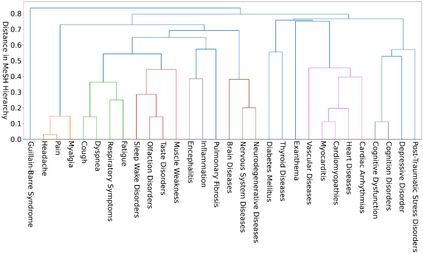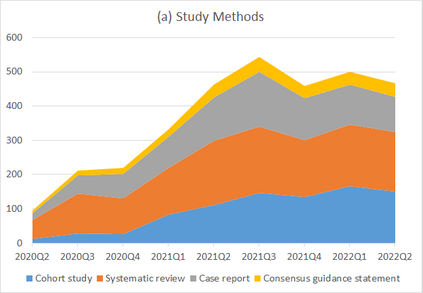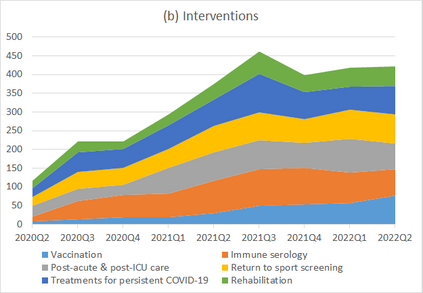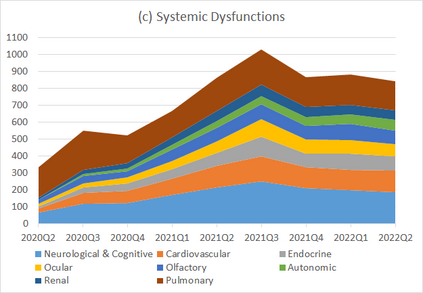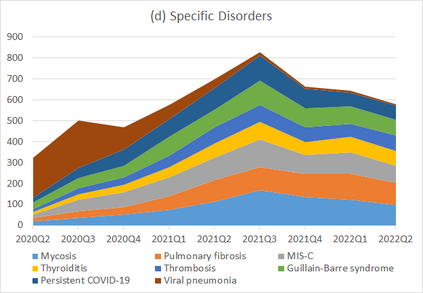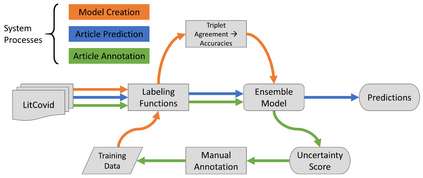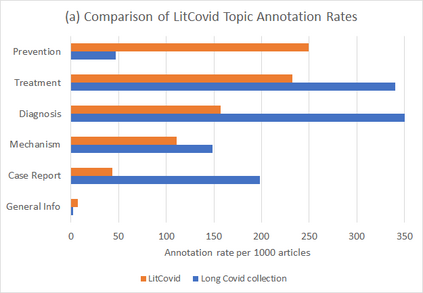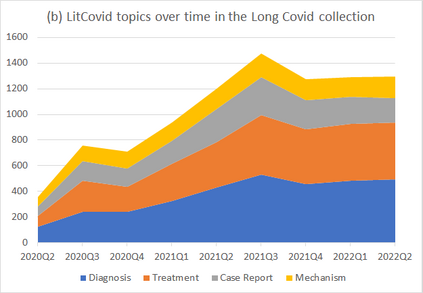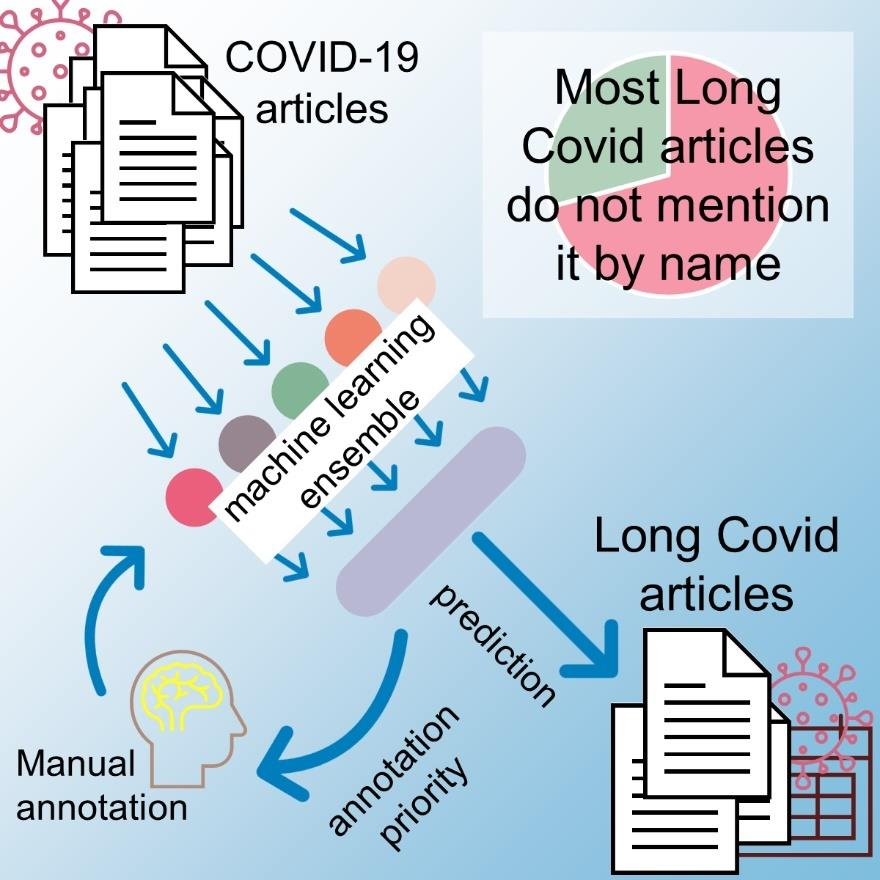A significant percentage of COVID-19 survivors experience ongoing multisystemic symptoms that often affect daily living, a condition known as Long Covid or post-acute-sequelae of SARS-CoV-2 infection. However, identifying scientific articles relevant to Long Covid is challenging since there is no standardized or consensus terminology. We developed an iterative human-in-the-loop machine learning framework combining data programming with active learning into a robust ensemble model, demonstrating higher specificity and considerably higher sensitivity than other methods. Analysis of the Long Covid collection shows that (1) most Long Covid articles do not refer to Long Covid by any name (2) when the condition is named, the name used most frequently in the literature is Long Covid, and (3) Long Covid is associated with disorders in a wide variety of body systems. The Long Covid collection is updated weekly and is searchable online at the LitCovid portal: https://www.ncbi.nlm.nih.gov/research/coronavirus/docsum?filters=e_condition.LongCovid
翻译:相当大比例的COVID-19幸存者经历着经常影响日常生活的多系统症状,这种症状被称为SARS-COV-2感染的长 Covid 或后急性-地震,然而,确定与Long Covid 有关的科学文章具有挑战性,因为没有标准化或协商一致的术语。我们开发了一个迭代的人类流动机器学习框架,将数据编程与积极学习结合成一个强大的混合模型,显示出更高的特殊性和比其他方法高得多的敏感性。对Long Covid 收藏的分析表明:(1) 大多数长 Covid 文章不以任何名称提及长 Covid 。 (2) 当情况被命名时,文献中最经常使用的名称是 Long Covid 和(3) Long Covid 与各种身体系统中的疾病有关。LitCovid 收集每周更新一次,可在LitCovid 门户网站上搜索:https://www.ncbi.nlm.nih.gov/reearch/corona病毒/docsum?fielters=_se.LongCovidd.

